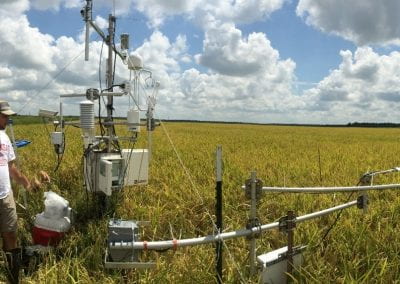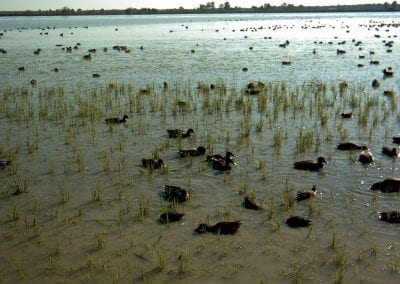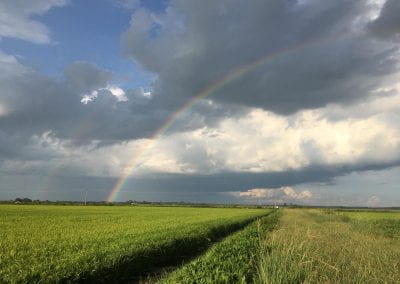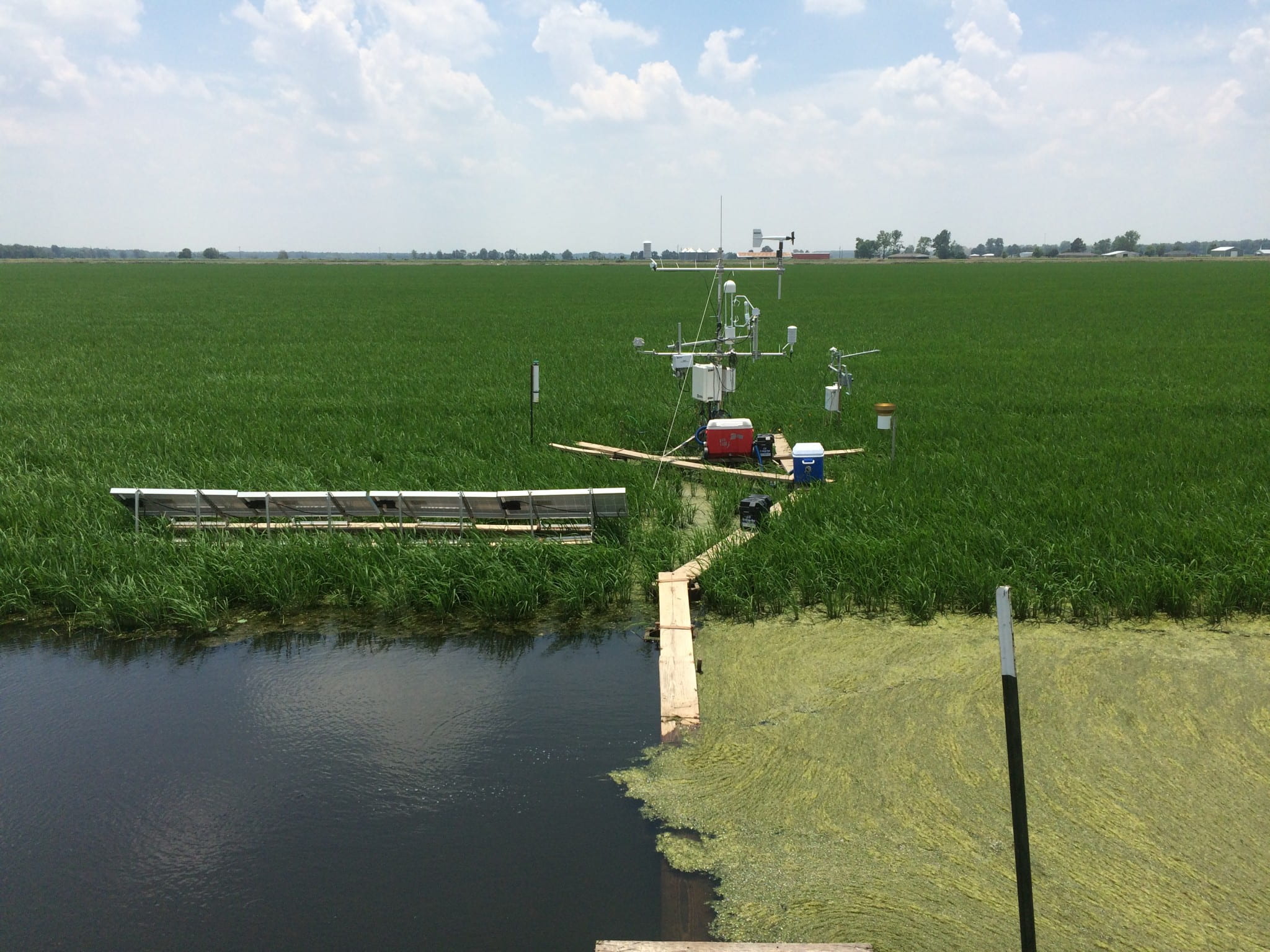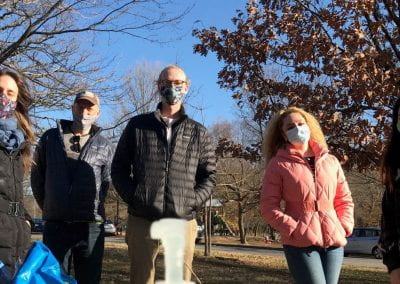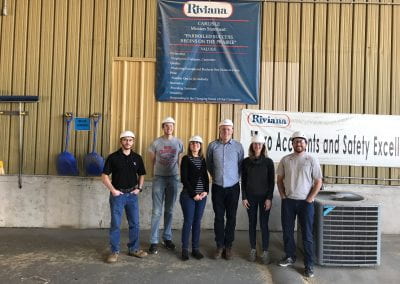Wetland landscape flux research:
We research connections between the carbon and water cycles in wetland environments. This field-based or model-based research involves long-term measurements of key environmental fluxes (e.g., evapotranspiration, surface water flows, carbon dioxide and methane emissions from the landscape to the atmosphere). This research also provides the basis for process studies and computer modeling approaches to environmental systems.
Research projects will be based in rice fields in Arkansas and bottomland hardwood forests in the mid-south. Both projects will use flux budgeting methods to understand the landscape’s ecological and hydrological functioning. This research will connect between site dynamics and climate drivers with the goal of feeding simplified process representations used at the scale of the global climate model. Our rice fields are listed within the AmeriFlux network (US-HRC; US-HRA). Cameras at the site track the greenness phenology and can be viewed here and here.
We are lucky to be hosted in our research by Isbell Farms, who run a great youtube channel.
We have blogged about research at these sites in a series of Field Notes published by the University of Arkansas’s Research Frontiers (One, Two, Three, Four).
Additional flux measurement research
I also like to develop research threads enhancing the methodology of micrometeorological flux measurements – diving more deeply into the raw 20 Hz data at turbulent structure and coherence, better accounting for the energy imbalance and cospectral attenuation, and reducing the costs of flux measurements. See for example the work with the surface renewal method led by former postdoc Kosana Suvočarev or wavelet-based detection of ebullition fluxes by Will Richardson.
Sustainability research
Based on my experiences as a researcher at the University of Hamburg’s “Sustainable Future Postdoc College,” I am interested in developing broad, inter-, multi-, and trans-disciplinary metrics for measuring and evaluating the sustainability of higher education institutions. I’m also interested in expanding upon past research in bringing earth sciences and engineering materials into the (primary through higher education) classroom. Similarly, I believe in generating scientifically-based materials to enhance public understanding of key issues. One example of this kind of outreach is highlighted in an appearance as a Climate Expert on DW’s youtube channel. I am currently engaged with activities to think about better using our landscapes for Nature-based Climate Solutions.
